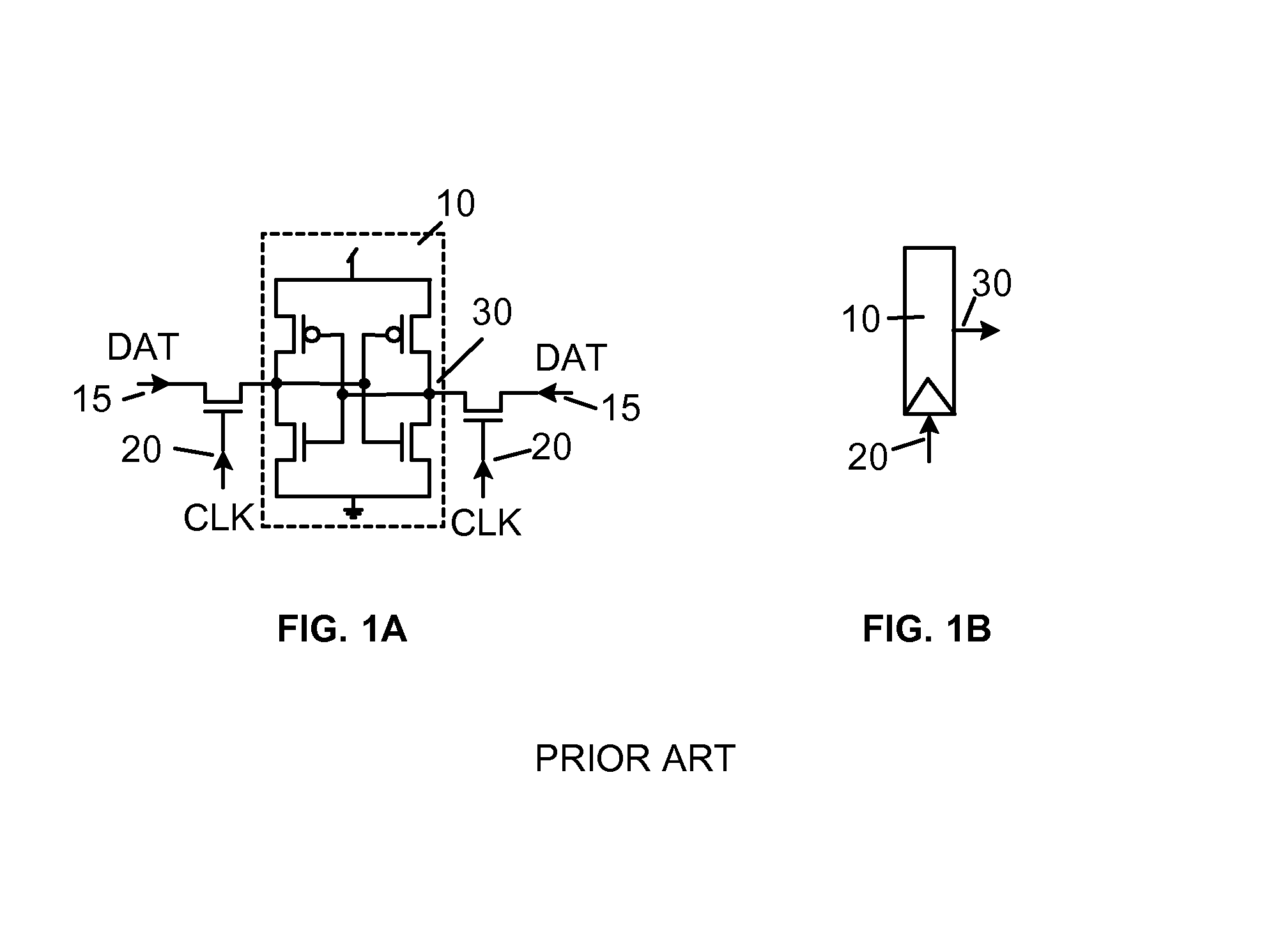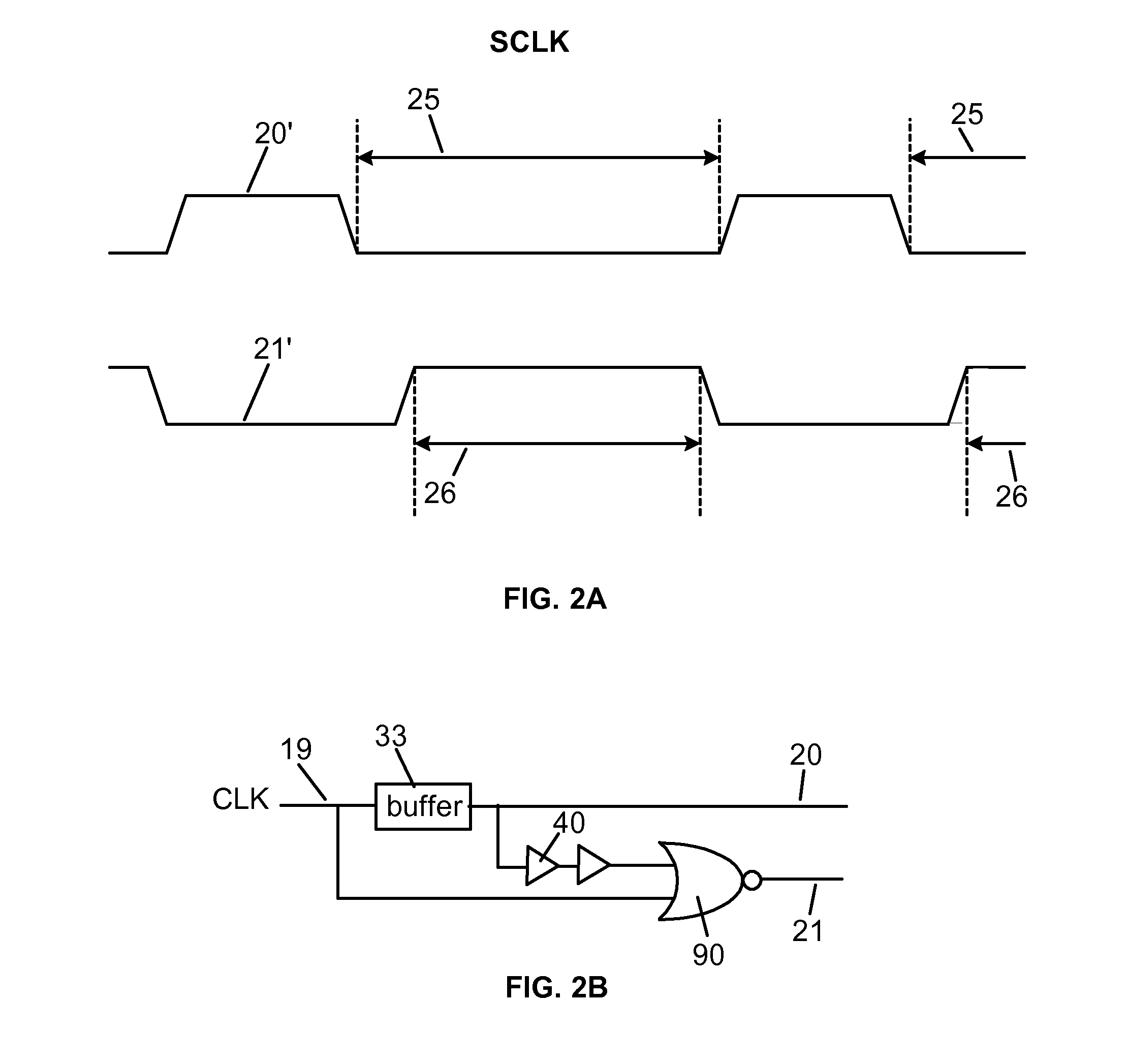Soft error detection for latches
a latch and error detection technology, applied in the field of digital integrated circuits, can solve the problems of unavoidable source of such errors, ionizing radiation, and undetected errors, and achieve the effect of enabling circuit respons
- Summary
- Abstract
- Description
- Claims
- Application Information
AI Technical Summary
Benefits of technology
Problems solved by technology
Method used
Image
Examples
Embodiment Construction
[0012]FIG. 1A shows a representative example of a latch 10 that may be susceptible to soft errors. Latches are well known in the electronic arts, they are fundamental building blocks of integrated circuits. If not disturbed, a latch holds its state indefinitely. Consequently, if one observed, for instance, one side of the latch at a trace node 30, the voltage on the node would remain constant. During normal functioning the state of the latch is changed only by data (DAT) arriving through the inputs 15. In a typical integrated circuit (IC) latches are clocked. In the latch 10 shown in FIG. 1A, clocking 20 (CLK) is applied to passgate transistors in the data path 15. Data can enter the latch only when the clocking 20 is in a phase that opens at least one of the passgates. In known nomenclature, the phase when clocking allows data in and out of the latch 10, is called the data phase. When clocking prevents data exchange with the latch, it is called the hold phase, or hold state. The cl...
PUM
 Login to View More
Login to View More Abstract
Description
Claims
Application Information
 Login to View More
Login to View More - R&D
- Intellectual Property
- Life Sciences
- Materials
- Tech Scout
- Unparalleled Data Quality
- Higher Quality Content
- 60% Fewer Hallucinations
Browse by: Latest US Patents, China's latest patents, Technical Efficacy Thesaurus, Application Domain, Technology Topic, Popular Technical Reports.
© 2025 PatSnap. All rights reserved.Legal|Privacy policy|Modern Slavery Act Transparency Statement|Sitemap|About US| Contact US: help@patsnap.com



